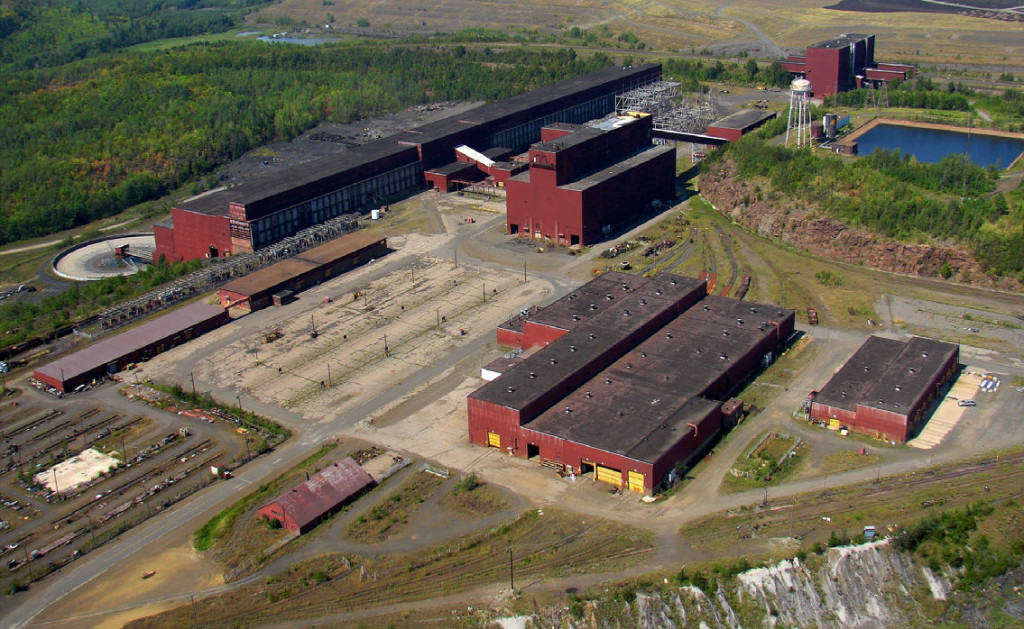
The Minnesota Court of Appeals has ruled that state regulators must consider PolyMet’s potential plans to expand the copper-nickel mine in northern Minnesota when considering a key permit. The court issued a ruling yesterday that sends the air pollution permit issued by the Minnesota Pollution Control Agency back to the agency for more work.
Four of PolyMet’s major permits have now been struck down by courts, leaving the proposed open-pit mine in legal limbo. The permits are all in various stages of review and revision, with the future of the state’s first proposed copper uncertain.
Environmental groups said it’s another sign PolyMet’s proposed mine is fundamentally flawed.
“Today’s decision is yet more confirmation that PolyMet is a failed proposal,” said Kathryn Hoffman, Chief Executive Officer of the Minnesota Center for Environmental Advocacy (MCEA). “It comes on the heels of a Minnesota Supreme Court decision that rejected the permit to mine and the U.S. Environmental Protection Agency stepping in to put the brakes on the proposal over downstream water pollution. It’s time to move on from PolyMet and find better alternatives for northeastern Minnesota.”
‘Sham’ proposal possible
MCEA and other sued the MPCA over the permit, which was issued in 2018, saying the agency ignored evidence that PolyMet plans a much larger mine than is permitted, but is using the smaller proposal to get in the door before revealing its real plans. The Environmental Protection Agency, which has authority through the Clean Air Act, says agencies must consider such “sham permitting” attempts when considering a proposal.
“While disappointed in the court’s decision, we stand firmly in our belief that the Minnesota Pollution Control Agency appropriately accounted for the potential effects of the NorthMet Project and will expeditiously provide the supporting explanation requested by the court,” the company said in a statement.
The accusations that PolyMet is engaged in sham permitting relate to official documents filed with Canadian financial regulators. Days after the comment period closed on the air permit, the company explained how it could hit earnings goals with a mine three to four times larger than what it’s proposed so far. At the currently permitted size, the mine would not meet industry investment standards for profitability.
Environmental groups shared the Canadian documents with the MPCA, but the comment period was closed and the agency ignored the information.
“PolyMet has been speaking out of both sides of its mouth trying to keep its plans for a bigger, dirtier mine hidden from the people of Minnesota,” said Chris Knopf, Executive Director of the Friends of the Boundary Waters Wilderness, which joined MCEA in the lawsuit.
In addition to MCEA and Friends of the Boundary Waters Wilderness, the Center for Biological Diversity was also part of the lawsuit. Related suits by the Fond du Lac Band of Lake Superior Chippewa and other groups have also been combined for this ruling.
Permits paused
By saying it will operate at the smaller size during permitting, PolyMet does not trigger thresholds for review as a “major source” of air pollution. Proposals exceeding that level are required to be reviewed before construction begins. But some companies try to build their facilities at the smaller size and then get permits relaxed after construction is completed.
“Applications for commercial loans or, for public utilities, bond issues, should be scrutinized to see if the source has guaranteed a certain level of operation which is higher than that in its construction permit,” the Environmental Protection Agency wrote in a 1989 memo outlining legal precedents related to sham permitting. “If the project would not be funded or if it would not be economically viable if operated on an extended basis (at least a year) at the permitted level of production, this should be considered as evidence of circumvention.”
PolyMet cannot begin construction or operation of its mine until its permits are fixed. In April, the Minnesota Supreme Court struck down the permit to mine, requiring the DNR to hold a contested case hearing and to add a time limit for when post-mining reclamation would be complete. Last month, the Army Corps of Engineers suspended PolyMet’s wetland permit while it is determine if the Fond du Lac Band of Lake Superior Chippewa and State of Wisconsin would be affected by pollution from the PolyMet proposal. Lastly, PolyMet’s water pollution permit is suspended while under consideration by the Minnesota Court of Appeals.
The Court of Appeals judges said that, in sending the permit back to MPCA to consider sham permitting, the court doesn’t mean the mine can’t be permitted. It simply requires the state agency to consider evidence that it intends to operate a much larger mine and make a decision including those facts.
More information
- In the Matter of Issuance of Air Emissions Permit No. 13700345-101, Minnesota Court of Appeals Ruling (PDF)
- Court sends PolyMet permit back to state environmental regulators – MPR News
- PolyMet air pollution permit rejected by Minnesota Court of Appeals for the second time – MN Center for Environmental Advocacy

